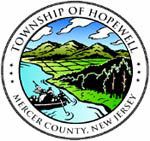By Frank Mustac, Contributor
A $23 million-plus municipal budget for 2017 introduced by the Hopewell Township Committee is being criticized over the amount of surplus from last year being used to fund this year’s proposed tab., Under the new budget, the tax rate that property owners would pay to fund township government expenses is estimated to be about 37.01 cents per $100 of assessed property value, an increase of 1.7 percent compared to 2016, according to Mayor Kevin Kuchinski., The municipal budget does not include county or school taxes., Before the budget was introduced during the most-recent Township Committee meeting, former Hopewell Township Mayor Harvey Lester spoke to express his concern that 20 percent of the 2017 budget is being financed from a sizable portion of the nearly $12 million total surplus from 2016., “With regards to your budget introduction this evening, I urge the committee not to introduce this risky spending plan that uses over 34 percent, or one-third, of our our total surplus as part of your spending plan,” Lester said on March 27. “I urge you to ask the state for more time to come up with a reasonable budget.”, He said that introducing the budget would mean “$4 million of our rainy day fund is being used to prop up this spending plan based on rosy predictions of unknowable future events.”, “It would be like using your savings to pay for your lifestyle. Sooner or later you know that it will not end well,” Lester said., In a letter to the editor, Lester said, “the State of New Jersey cautions against using more surplus in a spending plan than was returned to the surplus in unspent funds from the previous year. This 2017 spending plan blatantly violates that prescription by using over 110 percent more in rainy day money in 2017 than was returned to surplus in unspent funds in 2016.”, Current Hopewell Township Mayor Kuchinski rebutted Lester’s concerns in a prepared statement., Kuchinski said, in part, “As of December 2016, the township’s surplus fund finished with a balance of (about) $11.9 million, which is equivalent to almost 10 months of tax revenues for the township, Historically, the surplus fund has served two purposes:, 1) It funds current cash needs, much like a checking account. Because the township also collects taxes for the county, schools and fire district, we must carry additional monies in this fund to account for periods when tax payments to the schools or county come due before taxes are fully paid by residents, 2) (It is) a savings account or “rainy day” fund to account for unexpected township expenses., Think of your personal life. If your mortgage is due on the first of the month, but you don’t get paid until the fifth of the month, you set aside monies in advance in your checking account so that you can cover your mortgage payment., And we also put additional money into a savings account to cover unexpected expenses like an emergency car repair, a prolonged illness, or having to replace an appliance. Generally, experts recommend everyone have at least 6 months of expenses in their emergency fund., With 10 months in reserve, Hopewell Township is well above this threshold. In fact, we finished 2016 with one of the highest surplus totals in history, and expect to finish 2017 almost 30 percent above the past 20-year average of $8 million in surplus., After working closely with the school district over the past several months, we determined that significant savings could be accomplished by the shifting the timing of our payments to the school district in July and August to better align with when township taxes are paid., This reduced how much money we had to carry in our checking account to cover our summer “mortgage payments” to the schools, and we are now able to return $2 million dollars to township residents. The new partnership with the school district effectively allowed us to free up these monies., We’re using $1.55 million of the $2 million to reduce debt.”

